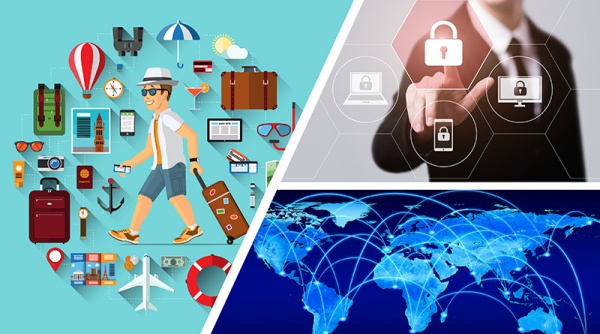These days, business disasters are not just confined to the office. Mobile electronic devices have made it possible for entrepreneurs to carry most (if not all) of their personal and business data everywhere they go. Whether it is a map of the area where they plan to go, copies of birth certificates, or client data, it is vital to keep these documents and details safe, regardless of your location.
A disaster can hit at any time. Somebody might attempt to hack into your system, a fire could occur where you left your laptop, or your mobile phone could get wet while you walk in the rain. Any of these hazards can stop your business or travel plans dead in their tracks or make operations more difficult.
An expert providing IT support AMC services in Dubai shares a few tips that entrepreneurs can follow while they are on the road. Remember that these tips are not a one-time deal; some may require regular checkups to ensure that your data stays updated and protected.
1. Regularly back up your data
Make it part of your routine to back up your computer and phone data, whether daily or weekly. This is particularly important when you are always on the road as your devices can get lost or stolen. By doing it regularly, you can quickly recover any data that was on the device.
Don’t wait until you are home to do this. In most major cities, you can find Wi-Fi or buy a SIM card that allows you to connect to the Internet for a fee. Making frequent backups also speeds up the process because in some cases, you may only need to upload some files and not the entire contents of your laptop or folder.
Upload your data on a backup device or the cloud. You can also save copies of your most sensitive files, such as your spouse’s visa to Canada or your business documents, in a USB flash drive. Put the USB flash drive in a separate bag or location where you keep your phone or laptop to prevent thieves from getting all your copies.
An alternative is to save your files on blank DVDs, if you have them. The objective is to create backups in several locations. Doing so offers options in case one backup fails.
2. Connect securely
Public Wi-Fi stations in airports, hotels, cafes, libraries and other similar locations offer free access to the Internet. Convenient as these may be, they lack security. Connecting to these hotspots puts your data at risk.
There is no way of telling who else is using the connection. Instead, subscribe to a VPN service. With a VPN connection, you can transfer files and perform transactions online more securely.
If you really need to connect to the Internet using free Wi-Fi hotspots, avoid accessing your personal accounts or any sensitive data. This way, you won’t leave your data exposed.
The same goes when charging in public using USB ports. As much as possible, only use power cables instead of those with data transfer properties to prevent people from accessing your mobile data.
3. Change your password and settings
Before you leave for your trip, update the PIN on your phone, and the passwords on your laptop, services or accounts that you regularly use or need to access soon. Avoid typical combinations such as asdf1234 or qwerty. As much as possible, take the time to think about your passwords – you can change them back once you’re back home.
Disable any automatic connections you may have as well, such as Wi-Fi or Bluetooth. Turning off these settings will prevent your phone from connecting to the Internet while traveling and giving hackers an opening or opportunity to access your data.
4. Leave unnecessary mobile devices
Some hotels provide safes which you can use to store valuables, essential travel documents such as passports, and mobile devices. If the day’s itinerary does not include any client meetings or important business transactions, it would be safer to leave your valuables in a safe. Avoid leaving them lying around in your room as they may get easily misplaced or stolen.
5. Install antivirus apps
Studies show that approximately 74,000 strains of malware are created each day. Regardless of the type of device you use, it is best to have antivirus apps installed on all your mobile devices.
Your antivirus is only as good as the last virus signature file you downloaded. The signature database is what helps detect viruses and malware on your laptop or phone. As such, you must keep your signature database as updated as possible.
Personal and Business Protection on the Go
As technology develops, the risk of a security breach rises. The more you travel and access the Internet, the more chances you present hackers to access your private data. However, security risks shouldn’t prevent you from growing your business or having fun during your trip.
Following these tips may not completely prevent hackers from stealing your data. But, like a home, adding security measures discourages thieves from targeting your devices. So follow these tips today to keep your data safe.
AUTHOR BIO
Sharon Mallorca is the Sales Manager at Create IT in Dubai. Established by innovative digital agency Create Media Group, Create IT has rapidly become the Middle East’s leading IT Support and IT Solutions company, providing the highest quality IT support and services to a growing portfolio of global brands.

